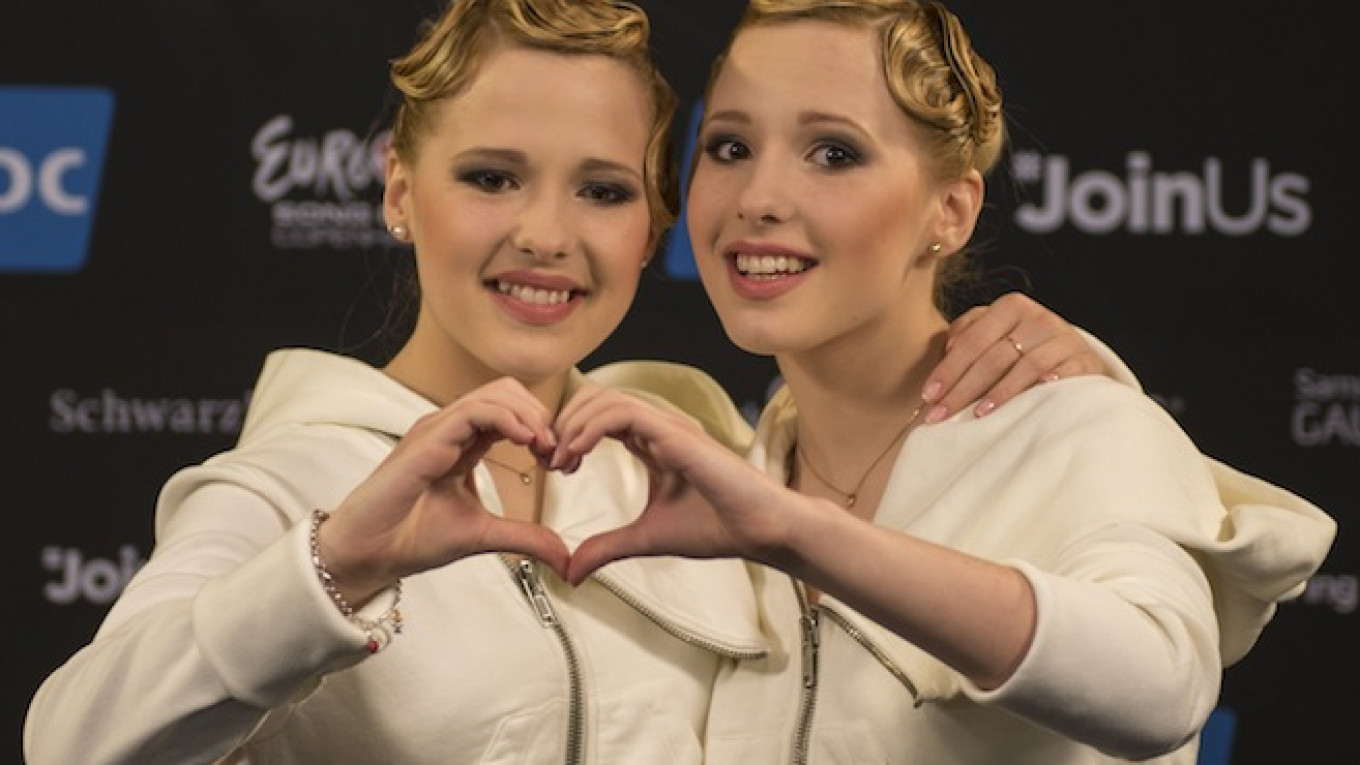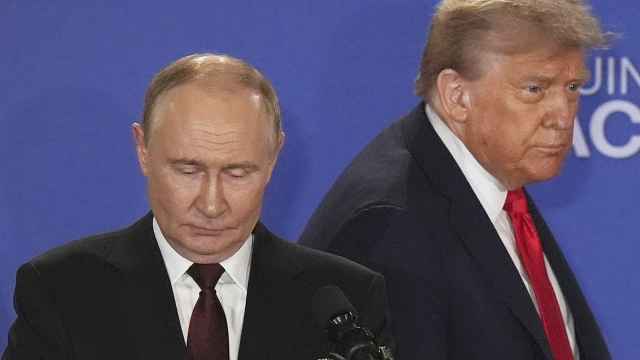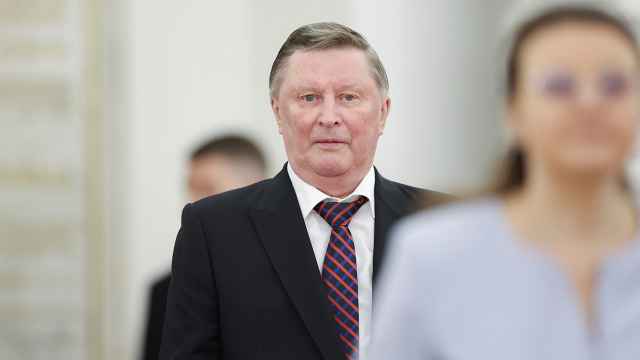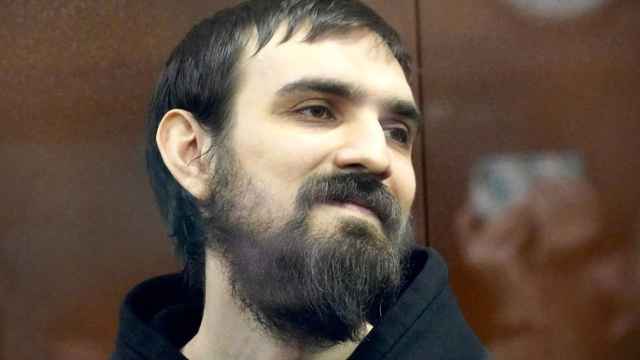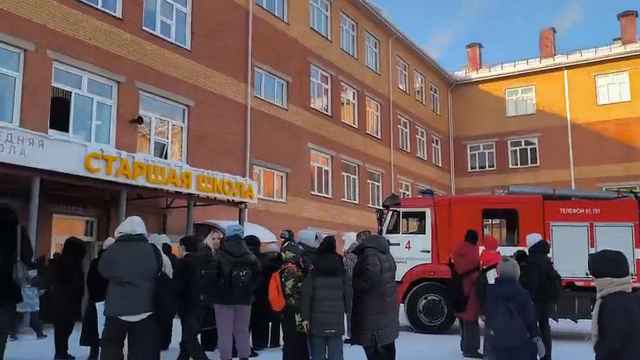Resounding jeers unleashed Tuesday night against the photogenic young twins chosen to represent Russia in Eurovision 2014 may have been motivated more by Russia's souring international reputation than by the sisters' singing skills.
Members of a live studio audience in Copenhagen booed loudly when it was revealed that the Tolmachevy Sisters — Russia's entrants in the pan-European song contest — had scored a spot in the finals.
The reaction was a far cry from the warm reception Russian entrants have enjoyed in past Eurovision competitions. The elderly dance troupe filling out Russia's 2012 team took second place and went down as the competition's most talked-about act. Likewise, Russian entrant Dima Bilan took first in the 2008 contest.
However, international attitudes toward Russia have shifted against the backdrop of such recent events as the Crimea annexation, Russia's purported involvement in the turmoil in eastern Ukraine, and Russia's adoption last year of a law prohibiting gay propaganda, which passed amid a flurry of Western outrage.
Russia's evolving reputation may cast a more pessimistic pallor over the chances of the 17-year-old Tolmachevy twins.
Though international headlines on Russia have recently tended to revolve around the Ukraine conflict, Tuesday night's reaction may have had more to do with the gay propaganda law, according to William Lee Adams, a former TIME journalist and editor of popular Eurovision fan site Wiwibloggs.
"There is a large number of gay people in the [Eurovision] crowd. In the wake of [President Vladimir] Putin's anti-LGBT laws, they are particularly sensitive and I think that came through last night," Adams told The Moscow Times by phone from Copenhagen.
As fans are unable to cast votes for their own national entrants, Russian performers have often benefitted from the support of voters from post-Soviet countries. While support from Ukraine will likely sink this year, the voting patterns in countries such as Belarus and Azerbaijan may not suffer any impact from recent events.
The same may not be true for Western participants. "I think that jurors in the West will be hesitant to put their name next to the Russian song because it might be interpreted as an endorsement of Putin's politics," Adams said.
Each participating country has a five-member jury whose rankings of other countries' contestants are combined with the public's telephone votes to award points to 10 different countries' singers.
The Tolmachevy Sisters, who previously won the Junior Eurovision competition in 2006, may have been selected as Russia's entrants as a means of deflecting political tension.
State television channel Rossiya, which selected the entrants, "knew that [Russia] would come up against criticism for the situation in Ukraine and for its anti-LGBT laws. So they thought, 'We need someone adorable. We need someone people won't boo.' Unfortunately it didn't really work out for them," said Adams, who has been in Denmark for the competition since late April.
The Russian delegation has also pursued a subdued and non-nationalistic media strategy. The Tolmachevy Sisters have generally shied away from the media, and delegation members have endorsed the duo's song "Shine" as the product of an international team that included members from Greece and Sweden.
It remains to be seen whether the controversy surrounding the Ukraine conflict will impact Saturday night's final performances or vote.
Contact the author at [email protected]
A Message from The Moscow Times:
Dear readers,
We are facing unprecedented challenges. Russia's Prosecutor General's Office has designated The Moscow Times as an "undesirable" organization, criminalizing our work and putting our staff at risk of prosecution. This follows our earlier unjust labeling as a "foreign agent."
These actions are direct attempts to silence independent journalism in Russia. The authorities claim our work "discredits the decisions of the Russian leadership." We see things differently: we strive to provide accurate, unbiased reporting on Russia.
We, the journalists of The Moscow Times, refuse to be silenced. But to continue our work, we need your help.
Your support, no matter how small, makes a world of difference. If you can, please support us monthly starting from just $2. It's quick to set up, and every contribution makes a significant impact.
By supporting The Moscow Times, you're defending open, independent journalism in the face of repression. Thank you for standing with us.
Remind me later.


